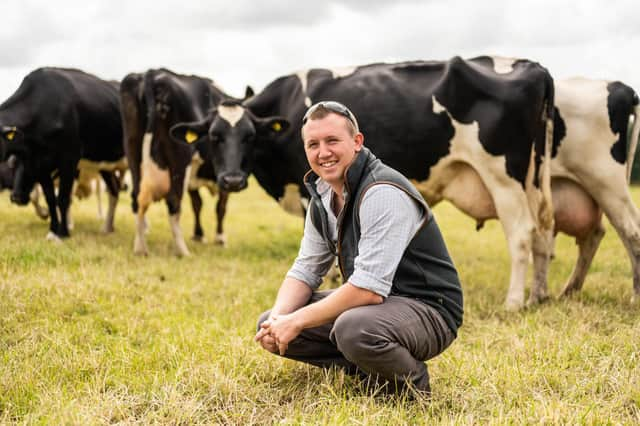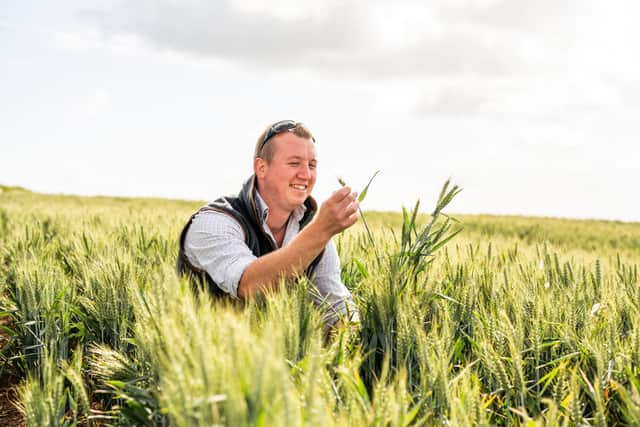Cowdray hire new head of farming and strive to become even more enviromentally friendly


Cowdray has announced Barney Tremaine in the newly created head of farming role. He will be implementing further environmental practices across the farm principally through regenerative agriculture as well as working with local schools and the community to encourage more farm visits to show what farms can do to help the environment.
Alongside developing the Midhurst-based estate’s future farming strategy, Barney is also responsible for overseeing Home Farm, which encompasses over 1,100 hectares including arable and forage crops, as well as 315 dairy cows and Aberdeen Angus beef cattle.
Advertisement
Hide AdAdvertisement
Hide AdBarney said: “I am passionate about farming and producing food without a negative environmental impact. The Estate’s farming aspirations align with my own and I feel incredibly lucky to be able to work in such a beautiful area.


“I am very much looking forward to getting more involved with the local and wider community. I am keen to encourage more school and community group visits to the farms and to tell people about what farms can do for the environment and why quality food and the way we produce it is so important.”
Cowdray are environmentally focussed on looking after the land and in recent years have embraced the principles of regenerative agriculture. The aim of regenerative agriculture is to put in place practices that serve to regenerate or materially improve the underlying soil ecosystem as well as the wider biodiversity of farmed land. This can be achieved through reducing soil movements, reintegrating livestock and minimising synthetic inputs amongst other practices.
Barney said: “Using regenerative and no till principles we should see a huge increase in biodiversity and bird numbers. There will also be a lot more wildflowers and cover crops will have more flowering plants. Using no insecticides will also massively boost insect populations, which in turn helps with disease and pest management on the farm.
Advertisement
Hide AdAdvertisement
Hide Ad“These practices will also help future proof the business and reduce the effects of extreme weather on the farm. It is a challenging time in farming, but I am very excited about my new role and the positive benefits that can be made through working for a large estate.”